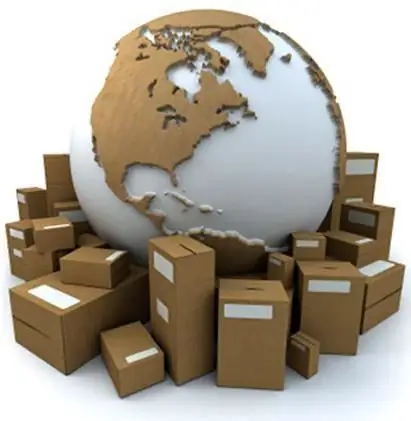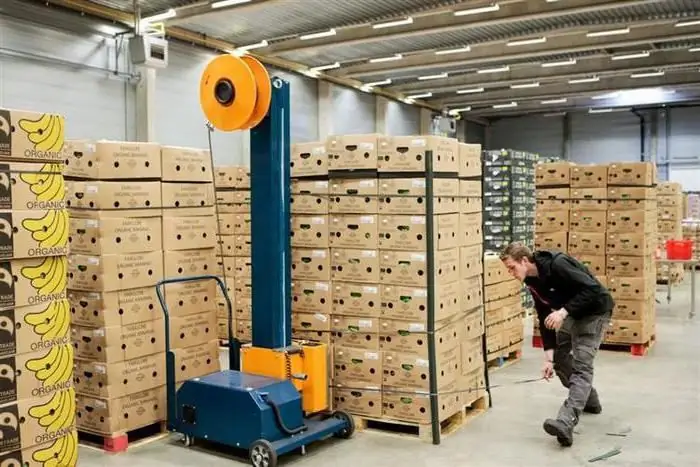2026 Author: Howard Calhoun | calhoun@techconfronts.com. Last modified: 2025-01-24 13:10:26
Excises are a type of indirect taxes. They are levied on payers who produce and sell certain categories of products. Excises are included in the cost of goods and, accordingly, are passed on to the final consumer. Their size largely determines the cost of production and affects demand. Let us further consider which goods are recognized as excisable.

General Principles
A feature of excises is the fact that they apply only to certain goods. There are several principles by which the products that fall under them are determined. First of all, it should be noted that essential goods are not subject to excise taxes. The main purpose of the payment is to provide budget revenues from excess profits derived from the production of highly profitable products. It mainly includes tobacco and alcoholic products, as well as petroleum products. It is important to note that by introducing this payment, the state seeks to limit the use of products that cause harm to consumers. We are talking, in particular, about tobacco and alcohol products.
Specifics
Excises are considered regulatory taxes. This means that the amount is distributed between the federal and regional budgets in proportions that depend on the type of product. For some products, deductions are made only to the state budget, for example. Today, the list of excisable goods has been streamlined. It almost corresponds to the lists in force in other countries. It should be noted that in the Russian Federation tobacco and alcoholic products are primarily recognized as excisable goods. It seems that it will always be present in the lists. This is due to its specificity. On the one hand, it cannot be considered mandatory for consumers, and on the other hand, its cost is quite low.
List
The following groups are recognized as excisable goods:
- Ethyl alcohol produced from raw materials of any kind. The exception is cognac alcohol
- Alcohol-containing products. These include emulsions, solutions, suspensions, etc. The alcohol concentration in them is more than 9%.
- Alcoholic products. The following goods are recognized as excisable: drinking alcohol, cognacs, alcoholic beverages, vodka, wine, other drinks in which the alcohol concentration is more than 1.5%. The exception is wine materials.

In addition, the following goods are recognized as excisable:
- Beer.
- Tobacco products.
- Cars, motorcycles. The motor power of the latter must be more than 112.5 kW.
- Engine oils for engines.
Diesel fuel and gasoline (including straight-run gasoline) are also recognized as excisable goods.
NK
Article 181 of the Code provides some explanations regarding certain types of products. As mentioned above, excisable goods are alcohol-containing products made from any type of raw material, including denaturing components, excluding the possibility of their use in the food and alcohol industries. The composition of such products contains solutions, suspensions, other liquid products, if the proportion of alcohol in them is more than 9%. Meanwhile, some goods are not recognized as excisable, regardless of the concentration of alcohol. These include:
- Treatment-and-prophylactic, therapeutic, diagnostic agents included in the State Register of Medicines and Medical Products. The same list includes medicines manufactured in pharmacies according to individual prescriptions.
- Means for veterinary use, registered and entered in the register, if they are bottled in containers with a volume of not more than 100 ml.
- Perfume and cosmetics. They are excluded from the list of excisable goods if the share of alcohol in them is not more than 80%, they have been registered and included in the State Register.
- Products of household chemicals, as well as perfumes and cosmetics in aerosol metal packages.
- Waste generated during the production of alcohol from food materials, alcoholic beverages, vodkas, and subject to further processing or use for technical needs.

Excisable goods are motor oils, gasoline, including straight-run. The latter should be understood as fractions obtained during the processing of oil, associated natural / petroleum gas, gas condensate, coal or other raw materials, products of their processing.
Payer categories
They are established by Article 179 of the Tax Code. Payers of excises include:
- Organizations.
- Individual entrepreneurs.
- Subjects recognized as payers in connection with the transportation of goods across the state border of the Russian Federation. Their list is established in accordance with the Labor Code of the Customs Union.
It should be noted that organizations and individual entrepreneurs can be considered payers if they carry out operations that are subject to excise taxes.
Important moment
Excise taxes differ from VAT in that they are considered single-stage indirect taxes. This means that they are included in the cost of production once and are also paid once. Oil products are an exception. They have a different scheme.
Base and amount
To define them, you need to clearly understand what the object of excise taxation is. Here one should refer to Articles 182 and 183 of the Tax Code. To avoid double taxation, the tax is charged on the sale of goods from the manufacturer. With further resale of products, the amount will not increase. In other words, the sale of excisable goods for tax purposes is recognized as the sale by their manufacturer, and not their sale by a store or wholesaler.enterprise. When determining the base and amount of deductions, it should also be taken into account that bottling and any form of mixing products in storage places is equated to production. These rules, however, do not apply to catering establishments.

Import products
If an entity imports products that are recognized as excisable goods, it should take into account a number of accrual features. They are determined by the customs regime that will be chosen. Features of taxation can be summarized as follows:
- When released for free circulation and for processing for domestic consumption, excises are paid in full.
- If the re-import mode is selected, the amounts from which the subject was released or returned to him during export are deducted.
- If transit, duty-free trade, destruction, refusal in favor of the state is issued, the excise is not paid. A similar rule applies to re-export regimes, customs warehouse, free zone.
- If processing is processed on the territory of Russia, the excise is not paid if the export is carried out on time.
- If the products are under the temporary importation regime, partial or complete exemption from excise duty is allowed according to the rules enshrined in the Customs Code of the Customs Union.
Export
If a person exports products that are recognized as excisable goods, he should take into account the provisions of paragraph 2 of article 185 of the Tax Code. When exporting in the re-export regime abroad of Russia, paid atimport amounts are subject to return to the payer. In other cases, the reverse transfer is not carried out.

Exemption from payment
Features of removing the burden of paying excises are disclosed in Articles 184 and 198 of the Tax Code. A prerequisite for exemption from deductions is the provision of a bank guarantee or surety to the tax office. They act as a security for the payer's obligation in case he does not present documents confirming the export of excisable goods and the payment of tax or pen alties on them within 180 days. If there are no relevant papers, the subject is obliged to transfer the amount to the budget. However, it is subsequently refundable if the above documents are presented.
List of securities
When exporting excisable goods, the payer must, within 180 days from the date of sale, submit to the Federal Tax Service Inspectorate documents confirming the validity of the exemption from paying excises. Among them:
- Contract (its certified copy) with a foreign purchaser for the supply. If the shipment is made under a commission agreement, guarantee, or under an agency agreement, they are presented.
- Payment documents, bank statement (or their copies). These papers confirm the actual receipt of profit from the sale of products to a foreign counterparty to the payer's account in a domestic bank or account of a commission agent, agent, attorney.
- Customs cargo declaration (copy). In hermust be marked by the Russian Federal Customs Service, which carried out the release of products in the export mode, or in the region of which the checkpoint is located, through which the products were exported abroad.
- Copies of shipping/transport or other documents. They must contain the marks of the Russian customs authorities confirming the export of products.
The subject receives the right to exemption from taxation of operations if he keeps separate records of them.

Bets
Since 1997, the process of transition from percentage (ad valorem) tariffs to fixed tariffs has been launched. When using the latter, there is no automatic increase in amounts with an increase in the cost of production. As a result, these rates are subject to annual adjustments. Today, most excisable goods are subject to fixed or specific tariffs. The exception is tobacco products. It has a mixed rate. It combines ad valorem and specific tariffs. Each type of excisable goods has its own rate. In addition, the legislation provides for the differentiation of tariffs within product categories. For example, different rates are set for alcoholic products and beer. Their value depends on the strength of the drink. The higher it is, the higher the rate, respectively. If we talk about cars, then the tariff depends on the capacity of the vehicle.
Jewelry
They are mentioned in article 181 of the Tax Code (subparagraph 6, paragraph 1). Excisable goods are jewelry,made using precious metals and their alloys, cultured pearls or precious stones. From this definition, it follows that no exceptions are provided for products manufactured by order of citizens from the materials of the customer. At the same time, the legislation fixes the list of goods that are not related to jewelry. Among them:
- State awards, insignia / distinctions, medals, the status of which is established by the Federal Law or Presidential Decrees.
- Coins that have the status of a payment instrument and have been issued.
- Objects of religious, cult significance used in temples during worship or sacred rites. The exception is wedding rings.
- Habbery.
- Items made of base metals or their alloys, in the production of which silver-containing solder is used, handicrafts created using gold-/silver-containing paints/threads.

Knowledge test
As you know, the topic of taxes and taxation is included in the course of study at many universities. Consolidation of materials and testing of knowledge is carried out in different ways. At the same time, students themselves develop tests on various topics. On issues related to products that are recognized as excisable goods, at MIT, for example, students write essays. It is worth saying that notes and tests can be found not only on the Institute's website or forum. For example, there is a Dean-NN portal on the Internet. Abstracts and tests are posted here. In the verification materials, one of the questions on the Dean portal is "The following goods are recognized as excisable." The following is a list of products from which you need to select the correct items.
Conclusion
Basic information about excisable goods is present in the Tax Code. The Code contains a special chapter that addresses all the key questions about such products. As for practice, as many manufacturers note today, it is becoming less and less profitable to produce some goods. First of all, this applies to tobacco products. In light of recent changes in legislation, its production requires serious financial investments. Particular attention should be paid to the declaration of excisable goods. Violation of the current customs legislation entails liability.
Recommended:
Classes of the Nice Classification: codes, list and classifier. What is the International Classification of Goods and Services?

For the registration of each mark of new products in business, the International Classification of Goods and Services is used. At the initial stage, the applicant determines under which category his activity falls. In the future, this will be the basis for the implementation of registration procedures and determining the amount of the fee paid by the entrepreneur
Preparing goods for sale. Types and purpose of goods. Pre-sale preparation

Preparation of goods for sale includes a whole range of actions necessary for quick turnover and increase the profit of the outlet
Re-sorting of goods is a simultaneous shortage of one item of goods and a surplus of another. Accounting for sorting during inventory

When conducting an inventory at trading enterprises, shortages, surpluses, and regrading are often revealed. With the first two phenomena, everything is more or less clear: there is either a lot of this or that product, or a little. Re-sorting of goods is a rather unpleasant and difficult situation
Why is the Bukhtarma HPP recognized as the best in the world?

How did it happen that the most reliable hydroelectric power station operates in the Republic of Kazakhstan? You will find the answer in the proposed article
VAT 10 percent: list of goods and services

If your product was not on our list, and you have a question: "VAT 10% in what cases (or rather, to what goods and services) does it apply?", you need to look at the Resolution. We have already indicated the number and date. It has a complete list. As a rule, these are all socially significant groups of goods that are in high demand among citizens

